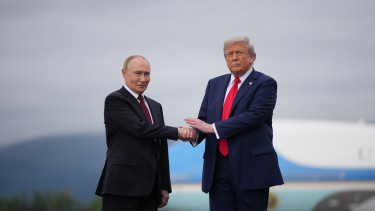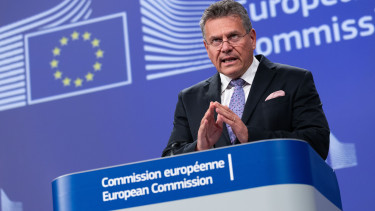CEU signs cooperation agreement with Technical University of Munich
Led by President Prof. Herrmann, a delegation from Technical University of Munich (TUM) visited Central European University (CEU) in Budapest on 7 May. President Herrmann and CEU Rector Michael Ignatieff signed an agreement on the cooperation between the two universities.
The agreement covers TUM faculty positions in three transnational dual appointments with CEU in Budapest in the field of
- politics,
- technology and society;
- academic curricular activities including joint seminars, workshops, summer schools, as well as course-based programs potentially leading to joint certificates and/or degrees accredited in Germany and the USA;
- and exchange opportunities for students, faculty and staff members.
The parties understand that the offer of the Bavarian government to support TUM’s engagement in Budapest is conditional on the ability of CEU to operate freely as a U.S.-degree granting institution in Hungary.
In this light both parties call on the Hungarian government to provide CEU with the legal guarantees that would make it possible to inaugurate this new chapter in Hungarian and Bavarian academic and scientific cooperation.CEU announced on 3 December 2018 that because Hungary’s Lex CEU forbids the university to accept new students after 1 January, 2019, CEU had no choice but to launch all U.S.-accredited degree programs in Vienna in September 2019.
Ahead of a key meeting of the European People’s Party that was to decide whether to expel Hungary’s ruling Fidesz party or suspend its membership, Hungary’s Prime Minister remarked:
On behalf of the Hungarian government, I can assure you that the participation of the Technical University of Munich in the Hungarian higher education in co-operation with CEU will not be impeded in any way.
“No partnership between CEU and TUM is possible without definitive legal certainty about the long-term status of CEU in Hungary," CEU added then.On 21 March, following a vote in the European People’s Party (EPP) Political Assembly, the membership of Hungarian party Fidesz was suspended with immediate effect (190 in favour, 3 against) after a joint proposal from the EPP Presidency together with Fidesz.
Accordingly, Fidesz:
- no longer has any rights as a party-member;
- no longer has the right to vote in any party meetings;
- no longer has the right to propose candidates for posts;
- cannot be present at any EPP meetings.
It was Manfred Weber, head of the EPP’s parliamentary group and candidate for European Commission President, that proposed two CEU faculties (democracy, government affairs) to be financed with the help of the TUM, and a third to operate in a foundation model.
Orbán said On Monday that he could no longer support Manfred Weber after he “insulted" Hungarians.
On Monday evening, Annegret Kramp-Karrenbauer, leader of Chancellor Angela Merkel’s Christian Democrats, signaled that the anti-immigrant, hard-right Orbán had crossed a river.
“With his behavior in the last few days and the meeting with (Italian Deputy Prime Minister Matteo Salvini), he has given a clear sign that he will leave," she told Reuters. The EPP had tried to build a bridge to Orbán, she added, but he had chosen another route.
In an interview on 29 March, Weber said he would not accept office as commission head if he needed the votes of Orbán’s Fidesz party to do so, telling German ZDF television he wanted votes from across the spectrum to advance a centrist agenda. Whereas Orbán said this was “an insult to Hungarian voters" and so he cannot support Weber any longer, only five days after the original interview he described Weber as an “outstanding" candidate.










